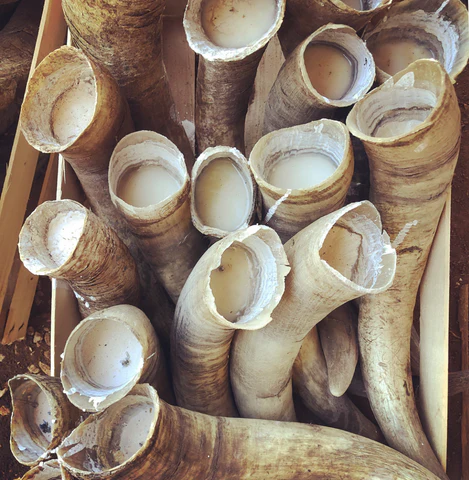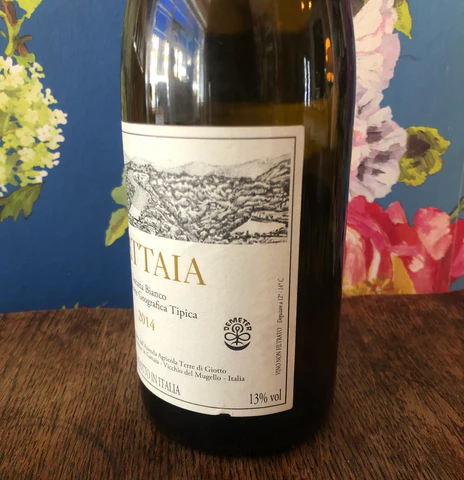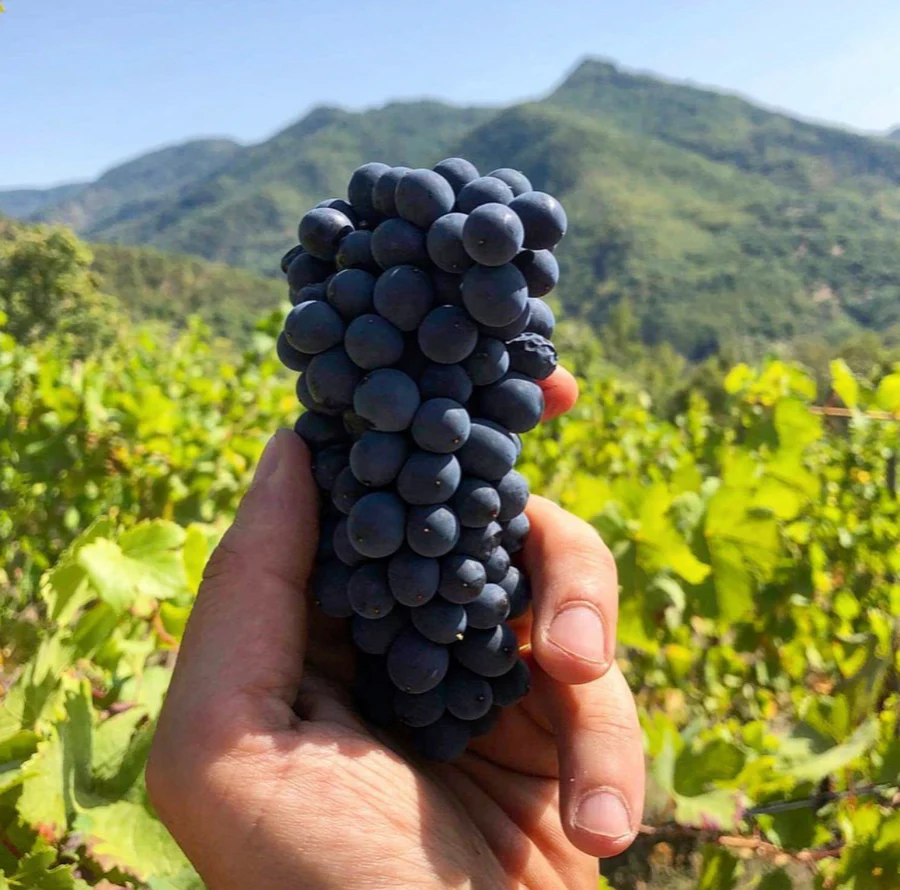Biodynamic wine: many of us have heard this word more and more often lately but the majority is still wondering and asking what does it mean exactly?
In order to answer this question, we need to briefly look at the history of farming, the changes introduced in the modern age with new chemicals and farming techniques and the discoveries and recommendations made by Rudolf Steiner (1861-1925), an Austrian philosopher and social reformer who introduced the founding principles of modern biodynamic farming.
Some people might think that biodynamic farming is a new trend, but in reality such approach to agriculture, has existed since ancient times, it was simply not called by this name. For millennia, what we call today ‘biodynamic and organic farming’ were the only ways of farming.
One of the biggest changes in agricultural practices occurred after the Second Agricultural Revolution. It must have felt like a dream for humans farmers who, after millennia, could finally dominate Nature with the introduction – among other innovations – of chemicals fertilizer and herbicides that dramatically increased yields and productivity of the land. Finally, many previously unsurpassable barriers were overcome.
Unfortunately, since that time, farmers have come to realization that the use of chemicals – whilst very helpful on one side – brought a degeneration of the soil in the long run, worsening the crops quality and a consequent exponential increase in animal diseases.
Chemical fertilizer (growing promoters) are essentially salts that increase a plant’s water needs, forcing it to absorb more water which leads to an increase of yields in terms of growth and fruit/flower production. But it also produce and imbalance, a disharmony, in the plant natural state. As a result to this imbalance the plant is more prone to develop diseases and farmers are forced to spray more chemicals as remedy.
In addition, herbicides helps to maintain the soil clean by killing unnecessary weeds, but they also disrupt and kill the Mycorrhizal, a symbiotic association between microorganisms such as fungi and a plant that plays an important role in plant nutrition, soil biology and soil chemistry. The Mycorrhizal and the other set of microorganisms naturally present in the soil are necessary to the vine and play a key role in its nutrition. Because of this additional disruption, chemical fertilizer are again used to help the plant grow and produce more. In such way, agriculture slowly becomes dependent on chemicals, not to mention the negative impact these chemical process have on organoleptic flavors and quality.
Rudolf Steiner – considered the father of biodynamic farming and the founder of the Anthropologist Movement - was the first person to investigate the effects of the use of chemicals in the farming process and how we - humans - were poisoning the land, animals and ourselves without any awareness of the immense long-term damage inflicted.
He highlighted a series of agricultural errors and suggested actions that needed to be taken:
Biodiversity: In relation to the damages stemming from monocultures and intensive farming, Steiner highlighted the importance of biodiversity in a natural ecosystem – which is a fundamental requirement for the health and resilience of the farm-organism. Trees of different kinds, aromatic herbs, flowers, vines and animals can and must coexist in the same farm, to create such biodiversity.
Soil: Steiner developed a set of principles on how to restore strength and vitality to the soil using natural remedies such as tisanes and biodynamic preparations (Horn Manure is a specially fermented cow manure preparation). The main purpose was to reinstate life in the vineyard and allow Nature to take care of the balance between insect pests and their natural enemies.
Lunar Calendar: Steiner advised to follow what he referred to as the “Biodynamics sowing and planting calendar”, related to the moon phases. The influence of the Moon’s gravitational pull on the seasons, tides and plant growth (as well as animal and human behaviour) has been documented since ancient times.
The “Spirit of Nature”: Steiner recognized a ‘spirit’ in nature that had to be respected and allowed to flourish on its own, natural terms. Many of his critics have described his methods as esoteric, but at the same time much of what biodynamic growers do, inspired by Steiner’s practices, still cannot be fully explained scientifically.

Biodynamic Horn Manure
So, what's biodynamic wine? And can we taste the difference?
Strictly speaking, biodynamic wine is a wine that has been produced by winemakers who follow Steiner’s principle of biodynamic agriculture. While biodynamic wine is part of the broader, loose category of ‘natural wine’, it is important to distinguish between the two.
Natural wine is not a regulated brand but it rather refers to a “romantic” movement of winemakers committed to a natural approach – no pesticides, no chemicals, indigenous yeasts, low sulphites, no filtration or manipulation of the wine of any kind and so on. There are no set of fixed requirements or certifications that classify a specific wine as being a natural one, only the ‘natural approach’ adopted by farmers. In essence, natural wine is a self-proclaimed definition used by winemakers who follow a natural approach. As such, ‘natural wine’ can mean different things to different producers.
Biodynamic wine instead it is a formal certification where all the specific principles of biodynamic agriculture promoted by Steiner are followed. The oldest and larger certification in use is the brand DEMETER.

Terre di Giotto - Biodynamic Orange wine (DEMETER)
To the question of whether we can taste the difference when tasting a biodynamic wine, I’d definitely say yes, and in a positive way.
Of course, because biodynamic wine is grown organically without much intervention, it is also more subject to some of the ‘faults’ that can occur during the winemaking process.
I admit there are many biodynamic wines which are not perfectly balanced, with some of such ‘faults’, and are therefore described as ‘hipsters’ and ‘funky’. However, there is some beauty in these imperfections, if you are in the right mood for it. But beyond these, other biodynamic wines are just majestically perfect, more than any “conventional” wine could ever be.
Wine makers have been working very hard, and learnt how to heal the soil which is now able to produce grapes of extraordinary expressivity. Their wines, whether biodynamic or ‘just natural’, are able to ‘talk’ to the drinker and communicate about vintage, the weather they have been exposed to, the altitude at which they grew, the land from which they come from and even the cherry trees planted next to the vines they have been produced from.
In each bottle, you can feel the “terroir”, or as I call it, “the sense of place”.
Criticized or loved, I think Rudolf Steiner has gifted us with a precious inheritance: the awareness of how important is to work in harmony with Mother Nature, especially in the context of winemaking.
Wine is a manufactured product, it could not exist in the form we drink it today without human intervention. Still, we can complement and help without excessive intervention on the soil and the plants. None of the elements involved in winemaking should overpower the others and only when respecting each other, living organisms, soil and Cosmos we can achieve the best results in wine production.
Ultimately, we are all connected 🙂
Check out our biodynamic wines here.


